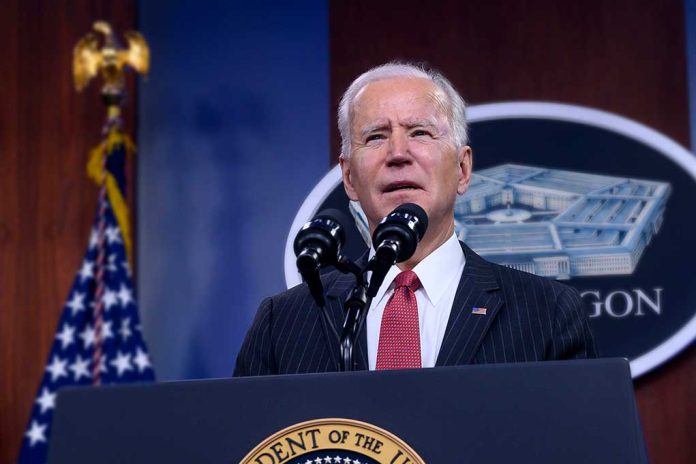
The Biden administration recently endorsed an 18-month extension for Temporary Protected Status (TPS) amidst an expected shift in immigration policy under newly elected President Donald Trump.
At a Glance
- The Biden administration extended TPS for nearly 1 million migrants from countries experiencing turmoil like Sudan and Venezuela for 18 months.
- TPS provides security and work opportunities in the U.S. for eligible migrants from certain countries.
- The program was previously curtailed by Trump, affecting 400,000 migrants, but expanded under Biden.
- Legal challenges might arise if the policy faces rollback under a Trump re-election.
Biden’s TPS Extension: A Significant Directive
The Biden administration’s decision involved extending TPS for approximately 1,900 Sudanese, 103,700 Ukrainians, 232,000 Salvadorans, and 600,000 Venezuelans. This move acknowledges the current socio-political instability in these nations, allowing migrants to continue residing and working legally in the United States. TPS earlier faced reductions under Trump’s administration, leaving over 400,000 migrants vulnerable to deportation. Biden’s directive represents a clear shift towards more inclusive immigration policies.
TPS was established under a 1990 law, designed to protect migrants from countries dealing with conflicts or crises preventing safe repatriation. Secretary Alejandro Mayorkas emphasized the importance of this measure, stating its significance in protecting vulnerable populations. He noted, ““These designations are rooted in careful review and interagency collaboration to ensure those affected by environmental disasters and instability are given the protections they need while continuing to contribute meaningfully to our communities.””
The decisions mark the Biden administration’s latest in support of Temporary Protected Status, which he has sharply expanded to cover about 1 million people. https://t.co/EkiDuxXwJr
— WHAS11 News (@WHAS11) January 10, 2025
Challenges and Anticipations in U.S. Immigration
This TPS extension could encounter legal challenges, considering the contrasting stance of the incoming Trump administration on immigration. President Trump has been vocal about the need to reduce immigration and has previously phased out TPS. Legal experts argue that any attempts to eradicate TPS would have to navigate intricate legislative frameworks, as indicated by Cornell Law School professor Steve Yale-Loehr: ““Trump can’t ignore what Congress wrote into law in 1990.””
The extension, however, is limited to those currently enrolled in TPS, stopping short of expanding eligibility. Human rights groups, such as the ACLU, have criticized the temporary nature of the program and argue for more permanent residency solutions. They maintain that while TPS offers immediate relief, it fails to provide long-term security. Emi Maclean highlighted this issue, stating, ““Today, TPS holders still do not have permanent residence, along with all the civil rights and political equality they deserve. Most members of this community have lived in this country for decades.””
The Biden administration is extending the Temporary Protected Status of 600,000 Venezuelan migrants through Oct. 2026.
Despite calls from advocates, the administration is not expanding the number of migrants eligible for the program, which is at risk of being revoked by Trump. pic.twitter.com/GNCriPCDLO
— Camilo Montoya-Galvez (@camiloreports) January 10, 2025
The Broader Impact and Future Prospects
The Biden administration cited ongoing violence and humanitarian crises in the affected countries as the rationale for the TPS extension. As the global stage continues to present challenges, this decision underscores the U.S. commitment to humanitarian support. Although legal hurdles loom, Biden’s action reaffirms his administration’s dedication to preserving dignity and security for migrants amidst geopolitical tensions.
As the U.S. grapples with the complexities of immigration policy, the need for a cohesive strategy remains evident. While the current administration supports migrants in distress, the permanence of such statuses continues to be a point of contention. Ongoing discourse in immigration policy highlights the need for sustainable solutions that align with national security while respecting the humanitarian spirit.
Sources
1. Biden extends temporary status for immigrants from Ukraine, Venezuela
2. Biden admin announces sweeping deportation shield for nearly 1M migrants




